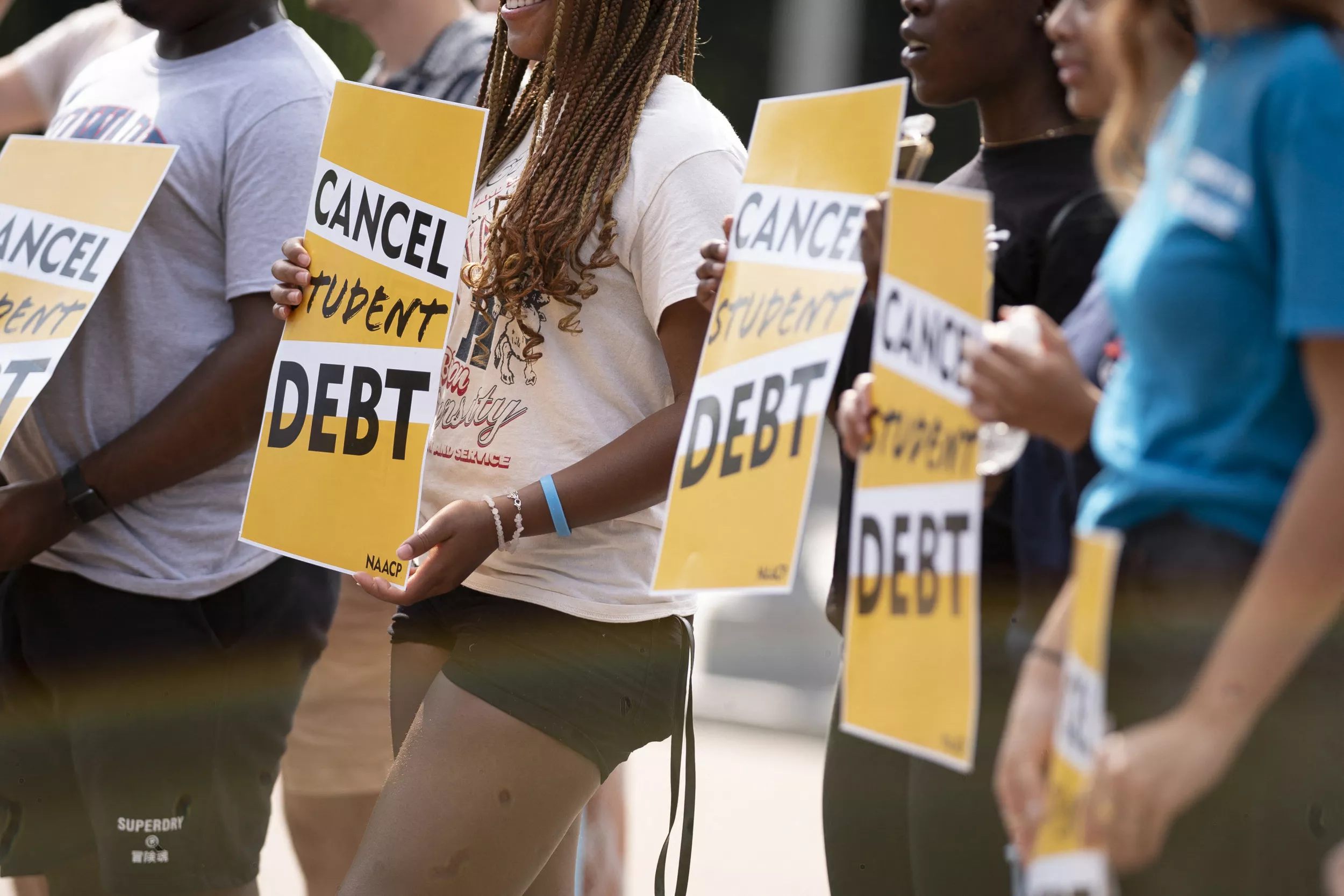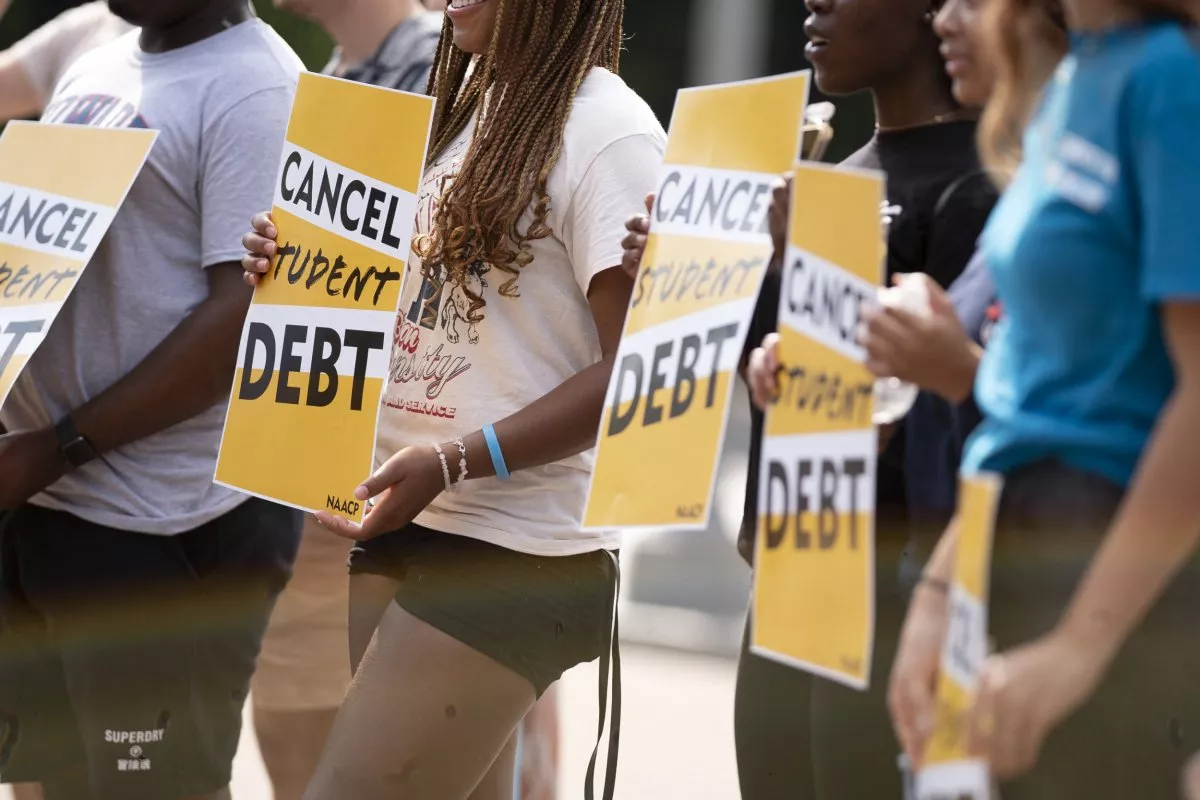
The U.S. Supreme Court on Monday agreed to resume a case surrounding a Biden-era student loan forgiveness rule.
Why It Matters
Former President Joe Biden‘s promises to forgive student loans to borrowers across the country faced myriad legal challenges from critics who believed he lacked authority to unilaterally forgive loans, and that taxpayers should not foot the bill for borrowers. Proponents of student loan forgiveness, however, say student loan debt has become a major burden for borrowers who are struggling to pay it off for years or even decades.
Biden’s rewrite of the Borrower Defense rule to make it easier for borrowers to have federal loans forgiven if schools either defrauded them or closed faced a legal challenge from Career Colleges & Schools of Texas (CCST), a trade organization. The Borrower Defense rule has been in place since 1994 but was rewritten by the Biden administration in 2022 to make the process easier for borrowers who were defrauded by a college to have those loans forgiven before a default, Forbes reported.

Activists hold “cancel student debt” signs outside the White House on August 25, 2022.
STEFANI REYNOLDS/AFP via Getty Images
What To Know
CCST challenged the 2022 rewrite over concerns that it could harm for-profit institutions, with a judge on the Fifth Circuit Court of Appeals in 2023 blocking the rule from taking effect. But the Biden administration appeal to the U.S. Supreme Court, which has agreed to take up the case, titled Department of Education v. Career Colleges and Schools of Texas.
Proceedings were paused earlier this year as the Trump administration requested more time to review the case after his return to office, but the court ordered briefings to resume on Monday, just weeks after Solicitor General D. John Sauer filed a motion making the request.
Sauer wrote that Trump’s Justice Department “decided to adhere to its position that the Higher Education Act permits the assessment of borrower defenses before default, in administrative proceedings, and on a group basis.”
On Monday, the Supreme Court granted the motion, meaning the case will resume and the court will hear oral arguments and weigh in on whether the Biden-era rule can remain.
The court will consider whether or not the lower court erred in ruling that the Higher Education Act of 1965 doesn’t allow for borrowers to file for borrower defense before default.
Alan Collinge, founder of the organization Student Loan Justice, told Newsweek that for-profit colleges’ opposition to the rules “says it all.”
“The majority of their students wind up in default, years of history have shown,” Collinge said. “The Departments of Justice and Education should go much further than simply defending the Borrower Defense Rule in court. They should be shuttering the large majority of these scam colleges. They should have closed them down years ago, frankly.
“Standard bankruptcy protections must be returned to the loans, as the right exists for all other borrowers, all other loans. Only then will the government be properly incented to crack the whip on these horrible schools.”
Still, Collinge said the case is “just re-arranging deckchairs on a sinking ship” and does little to address the larger issue of student loan debt for most borrowers. Most borrowers from for-profit colleges default on their loans regardless, he said.
Newsweek reached out to the Department of Education and a lawyer representing Career Colleges & Schools of Texas for comment via email.
What People Are Saying
Former Solicitor General Elizabeth Prelogar of the Biden administration, in a petition to the court: “Taken to its logical conclusion, the court of appeals’ decision would require wasteful litigation to resolve every asserted borrower defense—even when the Department and the borrower agree that the loan should be discharged—imposing significant burdens on borrowers, the Department, and the federal Judiciary. That threat and the growing backlog of unresolved borrower defense applications under the 2022 Rule impose current harms on the Department and on borrowers entitled to efficient resolution of their assertions of entitlement to relief. The Court should not permit the Fifth Circuit to continue its practice of contravening foundational equitable principles by ordering universal relief. This Court’s review is warranted now.”
Attorneys representing Career Colleges and Schools of Texas wrote to the court: “Petitioner Department of Education raises two distinct statutory issues, neither of which involves a conflict of authority, and both of which the court of appeals decided correctly. Furthermore, this case is a poor vehicle for addressing the question of preliminary relief, as the Department seeks review of only one of several grounds of invalidation and the moribund rule is unlikely to be maintained, let alone defended by the incoming administration.”
What Happens Next
Oral arguments have not yet been scheduled for the case but could be held as soon as the next term.



